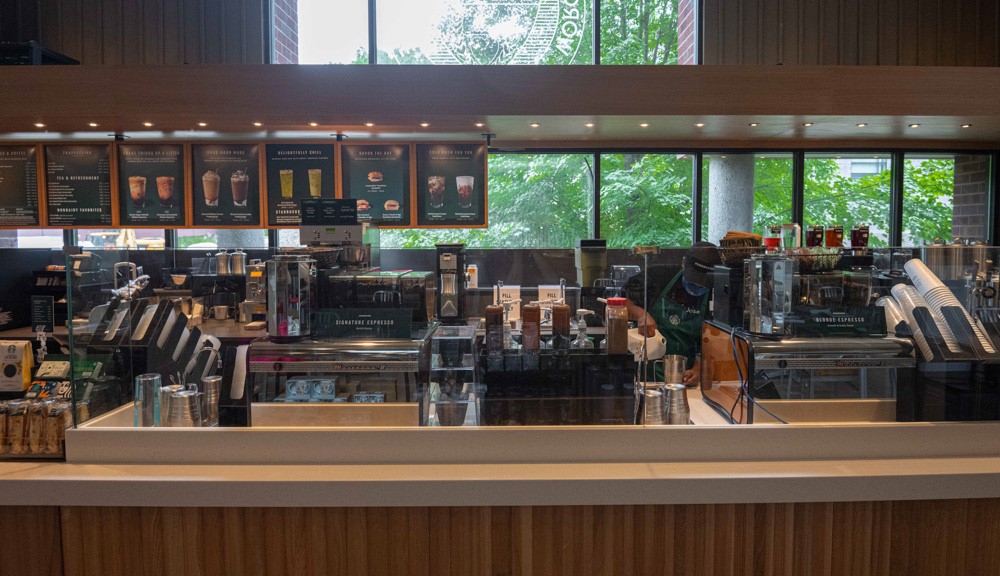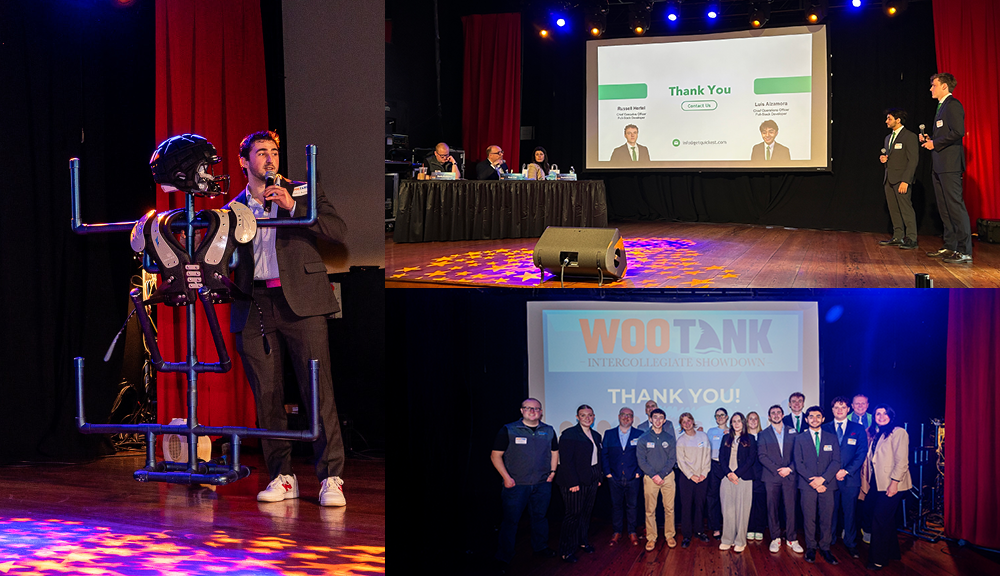A proposal to recycle usable items discarded when students move out of their residence halls won first place and $1,500 in the 2022 WPI Sustainability Innovation Challenge, a week-long series of networking and skills-building seminars that culminated in a fast-paced pitch competition before a panel of faculty and alumni on Oct. 21.
The team of Henrique Checcucci ’24, Sol Giesso ’24, Can Guven ’24, and Efthymios Loukedes ’24 won the competition with Circular Trash-to-Treasure Trading, a way to collect unwanted items that usually end up in the trash in the hectic residence hall move-out process, store them over the summer, and then offer them to the next group of students to move in. The goal is to save students money while keeping the items out of the landfill.
“The market will become an annual sustainability event that promotes waste-conscious culture,” said Giesso during the team’s five-minute presentation. Fashioned after an informal resident assistant initiative in Faraday Hall last spring, the market could save each student about $70 and put a dent in the more than 650 pounds of trash they generate yearly, according to the team. A second part of the project would create an online marketplace where unwanted items can be posted for sale or trade to other students at any point in the year.
Loukedes says they are planning to spend C- and D-Terms moving the idea to the next level with the help of the Green Team, faculty mentors, and the Office of Sustainability. The hope is to have something in place by spring.
“It seems like a really great concept,” says Nicole Luiz, energy and sustainability manager in the Office of Sustainability. “The biggest thing is storing the items, but there could be solutions for that. I look forward to seeing what they can do with help from the Green Team.”
Second place and $1,000 went to Universal Education, a proposal by Cesar Guillen to create a student group to use WPI’s distinctive project-based learning to solve problems for local and global community groups. Third place and $500 was awarded to Nina Devries and Madison Morales for an anerobic food digestor that creates energy from food scraps. Other projects explored solar panels and revolving doors, horizontal wind turbines on top of campus buildings, and “personal comfort systems” that would reduce overall energy consumption by providing items like space heaters and fans targeted to individual temperature preferences.
The competition was sponsored by the Innovation and Entrepreneurship Center, WPI’s chapter of Engineers Without Borders, and the Office of Sustainability; it included seminars on how to effectively pitch ideas by focusing on value creation. Judges were Curtis Abel, executive director of innovation and entrepreneurship; Curt Carlson ’67, trustee emeritus and executive-in-residence; Finn Arnold ’83, former vice president of research and emerging business at Bose Corporation; John Orr, professor emeritus of electrical engineering and computer science and former provost; Darren Rosbach, associate professor of teaching in civil engineering; and Sarah Stanlick, assistant professor in the Department of Integrative and Global Studies and director of the Great Problems Seminar program.
Abel encouraged all teams to continue refining their ideas by attending the center’s weekly pitch practice sessions, which take place on Thursdays at 12 p.m.




